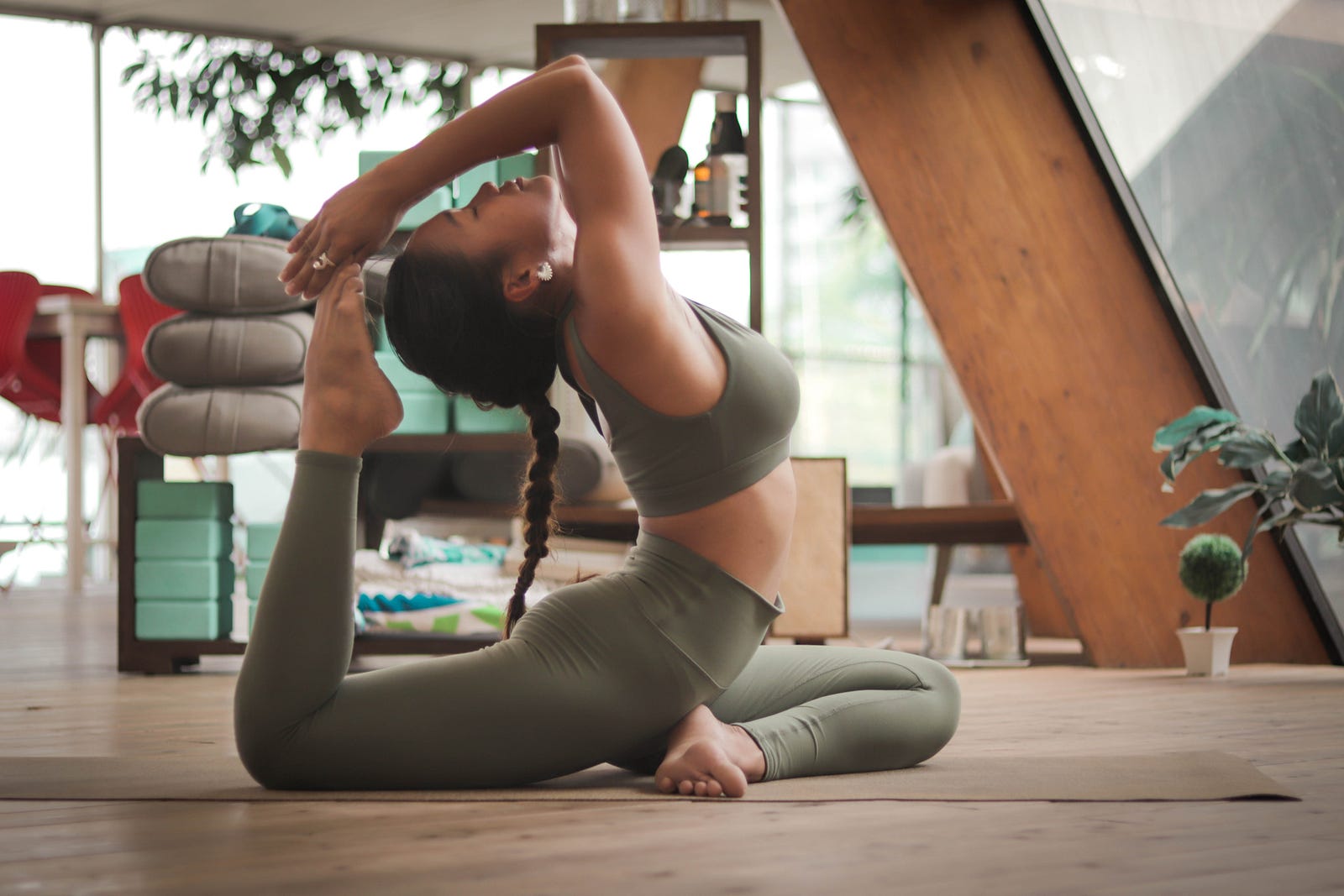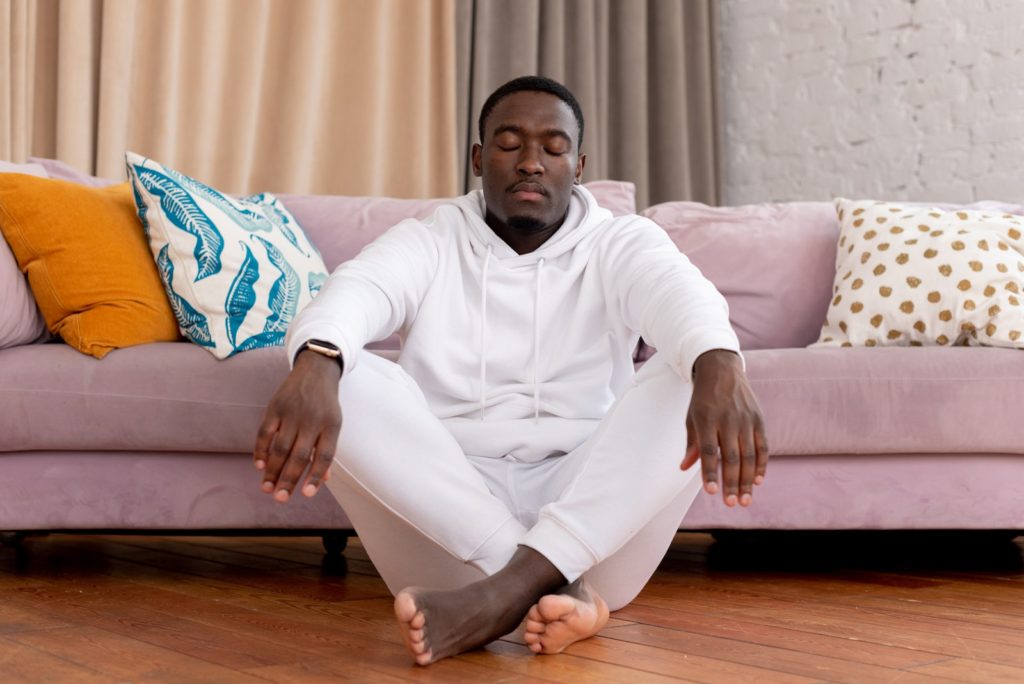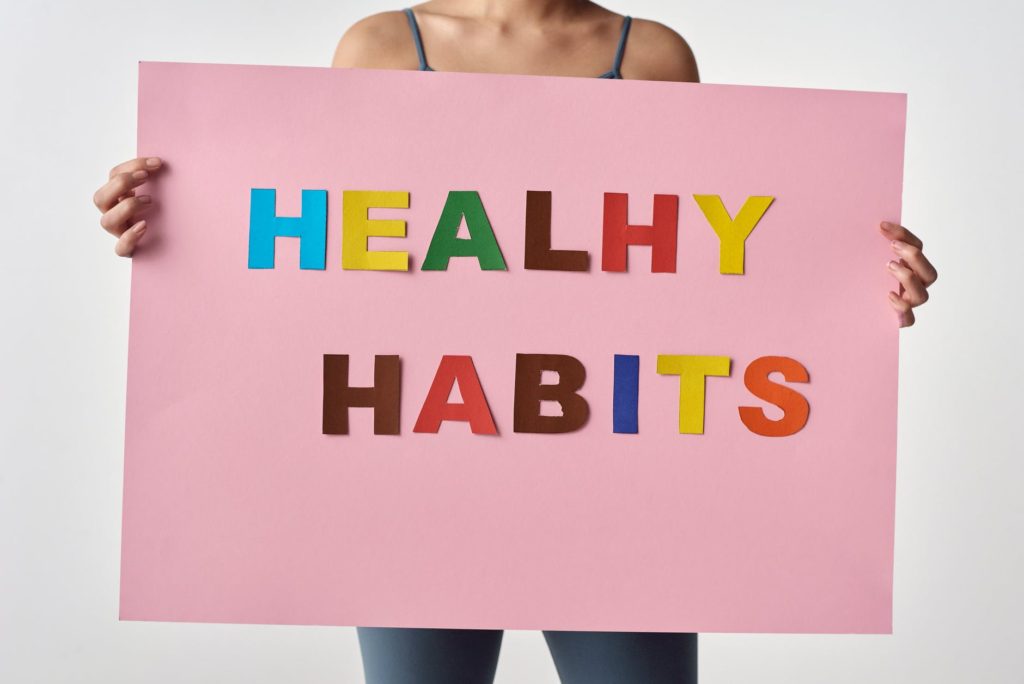The point of meditation changes from person to person.
But, for most people, the goal of meditation is to gain focus and power over your thoughts and emotions.
Meditation has been practiced in many different forms over the centuries, but only now is it gaining traction with modern people.
It’s often touted as having numerous benefits, such as reducing stress, improving concentration, and helping you relax.
That said, what is meditation?
And why should you do it?
Let’s look at this practice and why it can benefit your well-being and focus.
What Is Meditation?
Simply put, meditation is the practice of focusing your attention on something specific so that your thoughts don’t wander.
If you’ve ever tried to stop thinking about stressful, distracting thoughts whenever you were trying to sleep, that was a form of mindfulness meditation.
There are many different types of meditation, and they can be practiced with or without the help of a guide.
One way to meditate is to set aside a specific amount of time each day to focus on nothing but your breathing.
This can be done while sitting on the floor or in a chair with your back straight.
Alternatively, you can lie down on a bed or flat floor and focus on the feeling of your breath as it goes in and out of your body.
The key to this mindfulness meditation is focusing your thoughts on the feeling of your breath and nothing else.
Another way to practice meditation is to focus on a single object.
This can be anything from a specific picture or word to something you see.
Another popular way to practice meditation is to focus on a specific sound.
You can use any sound, such as your breathing, raindrops, or waves crashing on a shore.
Personally, I love meditating about what I’m doing at the moment.
For example, if I’m at the gym, I meditate on my muscles lifting the weight.
Or, as I write this blog post, I may think about something distracting like how good this one Indian buffet next to my house is (getting distracted…), but then I get back to writing.

Benefits of Meditation
1.) Stress Reduction
Meditation has been found to reduce stress levels.
This is because when you focus on one thing at a time and eliminate your distracting thoughts, you don’t have to worry about all the issues your mind creates.
So, you have fewer things to stress over.
2.) Better Sleep
Stress, anxiety, and sleep issues can all be alleviated by practicing meditation.
Studies have shown that the calming effects of meditation help you fall asleep faster, stay asleep longer, and be less likely to wake up during the night.
3.) Better Concentration
Once you’ve relaxed your nerves with stress reduction and improved your sleep with sleep meditation, you can get even more out of your day with enhanced concentration.
Studies have shown that people who practice meditation can better concentrate on a task without distraction.
This is because when you focus on one task at a time with meditation, you can transfer that same skill to other things in your life, like your work.
4.) Improved Self-Esteem
The more you meditate, the more confident you feel since you worry less about yourself.
Thus, you’ll be less likely to experience negative emotions like self-doubt, anxiety, and depression.

How to Meditate
If you’ve never tried meditation, your first step is to figure out a time that works for you.
Once you find a time that works for you, download a meditation app and commit to meditating for just one minute every day.
If you have the option to sit in a quiet place while focusing on your breath, that would be the optimal place to start.
If not, you can lie on the floor or sit in a chair with your back straight.
Once you do one minute of meditation every day, you’ll build the habit of meditating, and then you can progress to longer times, like twenty minutes per day.
As you meditate more and more, you’ll get the same “mindfulness feeling” during your normal life.
When you get that reminder to be mindful during your everyday life, follow that feeling and stay mindful.
This will allow you to transfer the concentration and mindfulness from your guided meditation practice to your everyday life.

Types of Meditation
While mindfulness meditation is the most popular form of meditation, it can be cumbersome to do every day.
If you’d rather not sit on the ground or lie down while focusing on your breathing, try meditating throughout the day in everything you do.
For example, as you talk to your family, focus on what they’re saying and return to the present moment when you realize that you’re thinking about something else.
However, if you still want to meditate daily in a more straightforward, controlled manner, doing a regular sit-down meditation can also be beneficial.
Here are some of the meditation types you can do:
1.) Classic Mindfulness Meditation
With this type of meditation, you’re trying to keep your attention on the present, whether that’s your breathing, the feeling of your body, or something else.
Whenever you realize that you’re thinking about something else, like an argument that you had, just let it go and come back to the present moment.
2.) Body Scan Meditation
This type of meditation focuses on your body, starting with your breathing and then moving your attention to your muscles and joints.
Make sure to scan your body from top to bottom and side to side, paying attention to any tension you feel as you do so.
I recommend relaxing your body parts as you “scan” through them since you’ll get really relaxed that way (it puts me straight to sleep!)
3.) Creative Visualization Meditation
This type of meditation is used to help you focus on positive thoughts.
With this type of meditation, you can imagine yourself in a situation you’d like to experience, such as vacationing in Tahiti, getting a promotion at work, or meeting your partner at a romantic dinner.

Tips for Newbies
If you’re a beginner at meditating, here are some tips you can keep in mind to help with your meditation journey.
1.) Map Out a Meditation Plan
The more deliberate you are, the better results you’ll get from meditation.
Find a time that works best for you and map out when you’ll meditate each day.
2.) Meditate Everyday
Make sure to meditate daily, even if it’s a small amount, so you build the habit forever and don’t quit.
In the beginning, I just meditated for one minute a day.
Then, after a couple of weeks, I increased the duration of my meditation sessions as they became less mind-numbing and as I saw the benefits of meditation working in real life.
3.) Take It Slow
People often want to achieve results immediately after trying something new, but results don’t come overnight.
With meditation, it’s common to experience minor improvements over time.
So, as long as you meditate daily, you’ll be progressing whether or not you can see it.
4.) Don’t Stress About It
It will be harder to relax if you’re feeling anxious about what you should be doing during your meditation session.
Try to relax while you’re doing it; you may find it easier to relax when you’re not stressing about the meditation itself.
5.) Try Different Things
You may find that focusing on your breathing or visualizing something a certain way isn’t working for you.
That’s OK.
Try a new form of meditation that suits you and your goals best.
The Medito app has many different types of meditation; you can go through them all to find the one you like best.

Should You Meditate?
The reduction in stress, improved concentration, and improved sleep that comes with practicing mindfulness meditation can help you live a happier and healthier life.
If you’re interested in improving your mental well-being, meditation is definitely worth it.
You may not get massive results immediately, but with time, you may find that it improves your focus and makes you feel more confident.
If you decide to meditate daily, I recommend the free, non-profit app, Medito.
Medito has hundreds of pre-recorded meditations that can guide you as a beginner.
And later on, as you become more mindful in your day-to-day life, you can meditate throughout your day to save time and make your mindfulness a more valuable skill.
Conclusion
As you can see, there are many benefits to practicing mindfulness meditation.
You may find that it improves your sleep, stress levels, and concentration, helping you to reach your goals.
You may even notice yourself becoming calmer and less anxious when you spend time in meditation.
Whatever it is you find, meditation is worth a shot.
I hope this helped!
If you want to know how to build healthy habits, check out this article where I lay out how I started building habits that actually stuck by just doing one minute of each habit daily.
And, if you want to find out how to meditate to reduce your anxiety and sleep better, you can read this article.
- Can You Still Lose Weight If You Aren’t in Ketosis? - February 8, 2023
- Can the Keto Diet Help With Depression? - February 8, 2023
- Why Does Processed Food Make You Fat? - January 2, 2023




